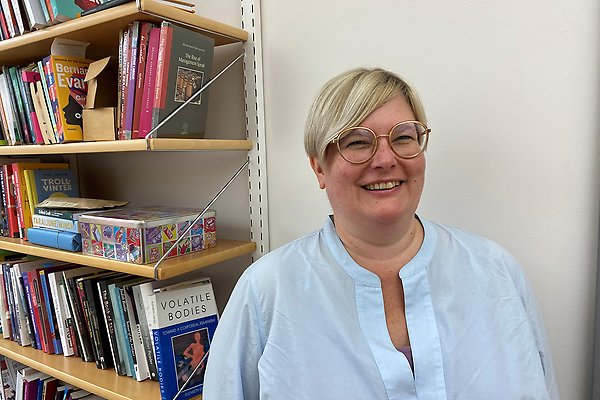Industrial Engineering and Management Emerges as the Top Choice Among Students
Since it started in 2020, the Master’s Programme in Industrial Engineering and Management has attracted the most applicants of all the engineering programmes in Uppsala. Management, engineering and computer science are seen as a winning combination for getting a good job.
As in previous years, the autumn semester admission figures for Uppsala University showed a high number of applicants per place for the Medicine programme and the Psychology programme. However, in the category ‘merit rating from the Swedish Scholastic Aptitude Test (Högskoleprovet)’, both the Medicine programme and the Master’s Programme in Industrial Engineering and Management came top. Both required a merit rating of 1.70.
“Since the programme started in autumn 2020, it has been the most popular engineering programme we have in Uppsala,” says Marcus Lindahl, Professor of Industrial Engineering at the Department of Civil and Industrial Engineering.
Industrial analytics a hot area in the labour market
He is himself an industrial economist from KTH Royal Institute of Technology, and was attracted to Uppsala University to build up a similar study programme. The programme’s focus lies on engineering skills within computer science, with a specialisation in industrial analytics and management. Studies in this programme prepare the graduate for project management roles and other senior positions in engineering or business development where a specialisation in digital technology is required.
“It’s about very data-heavy streamlining of production and monitoring, for example. That’s something that is extremely timely given the digital transition of Swedish industry that is occurring, without a doubt,” says Marcus Lindahl.
Even though there is a shortage of engineers in a number of sectors of society, many young people don’t opt for engineering programmes and only 50 per cent who do ever graduate. However, 220 students are currently studying the Master’s Programme in Industrial Engineering and Management in Uppsala. Given that 60 new students are admitted each year, drop-outs are relatively few.
You can create your own unique profile
Marcus Lindahl believes that part of the explanation lies in the fact that the programme does not have the same heavy focus on mathematics and physics as other engineering programmes.
“This programme is a kind of a mix. Those who choose this programme can ‘talk’ both management and engineering but don’t want to become just engineers.”
This view is shared by programme coordinator Nina Kivinen, also the course coordinator for Industrial Engineering and Management 1. During the programme, students come into contact with a wide range of activities and work with projects at both long-standing and new industrial companies – companies with engineering-based services, and specialising in both consumer and non-consumer products.
“At the same time, of course, there are students who are specifically interested in start-ups and some are already running their own companies. Others are interested in private equity, investment companies and the like.”

Programme coordinator Nina Kivinen is also the course coordinator for Industrial Engineering and Management 1.
According to Nina Kivinen, the programme’s strengths include the extensive contact between students and researchers, and its emphasis on questions of ethics, and on variety and diversity. In addition, the students are encouraged to go on student exchanges for a semester abroad.
“From day one, our students get to work in an environment where they are involved in making major decisions that have social as well as environmental impacts. That forces you to learn to think about a problem from many different angles. Our goal is for the students to do this right from the very beginning,” says Nina Kivinen.
Prepares graduates for the global labour market
It is still almost two years before the first students will graduate from the programme. What do the students think thus far? Klara Espling has just started her third year and thinks the great variety in the courses is among the best aspect of the programme.
“We are encouraged to be curious and take courses just because we want to, at other departments, for example. There are other students in my courses who are studying languages, history, gender studies and different types of computer science.”
She chose the programme so she could combine studies in management and engineering with the opportunity to drive social development with others. Her dreams for the future include working abroad with a focus on trade and supply chains.
“Alternatively, I would be interested in developing activities and solving tricky problems,” says Klara Espling.
Among potential employers, Marcus Lindahl mentions Volvo, Cytiva, Google and Sandvik. There are also all the long-standing industries that need to change how they are working and their technologies to transition to sustainable production, management and transport modes.
“Preparing students for the green transition in society is one of the biggest and strongest arguments for the programme,” says Nina Kivinen. “But the dream was also to be able to offer more knowledge that will be useful in humanitarian activities such as the Red Cross.”

